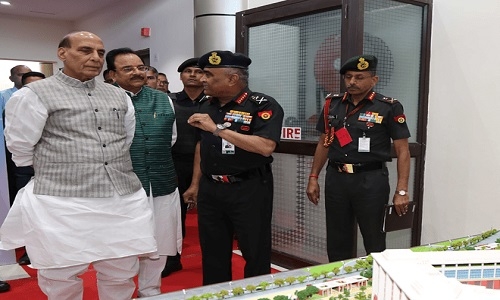India marks 25th anniversary of Pokhran N-tests
| Date :12-May-2023 |

NEW DELHI,
THE 1998 Pokhran nuclear tests sent a message to the world that although India is a peace-loving nation, it would not let anyone to harm its sovereignty, integrity and unit, Defence Minister Rajnath Singh said on Thursday on the 25th anniversary of the tests. India conducted five nuclear tests of advanced weapon designs between May 11 and 13 at Rajasthan’s Pokhran desert that propelled the country into a select group of nations having capabilities to develop nuclear weapons. The tests, carried out during the then Atal Behari Vajpayee-led Government, were the culmination of a committed team effort and backed by the development of the necessary know-how and expertise over decades.
The tests triggered strong reactions from many countries. India maintained that it carried out the tests to have ‘credible minimum deterrence’ and it will follow the approach of “no first use”, noting that it would not be the first one to launch a nuclear weapon.
In 2003, India officially came out with its nuclear doctrine that clearly elaborated on the ‘no first use’ policy. The Defence Minister spoke about the 1998 nuclear tests at an event organised to mark their 25th anniversary. Singh asserted that the tests gave a message to the world that although India is a peace-loving nation that believes in ‘Vasudhaiva Kutumbakam’ (the world is one family) and ‘Ahimsa Paramo Dharma’ (non-violence is the best religion), it will not let anyone to harm its sovereignty, integrity and unity.
“India has not only wished for peace for itself, but given the message to the world. Visionaries like Lord Buddha and father of the nation Mahatma Gandhi are India’s gift to the world,” he said. “We have never invaded any country nor enslaved it. But, the Pokhran tests gave a message that we will give a befitting reply to every step taken against our dignity,” he said. The department of atomic energy had said that the tests were fully successful in terms of achieving their scientific objectives and the capability to build fission and thermonuclear weapons with yields up to 200 kt (kilotons.) The 1998 tests were the second instance of nuclear testing by India. The first was carried in May 1974.